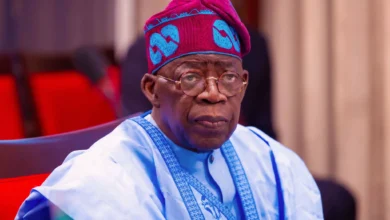Burkina Faso Revolutionary leader ends lawyers using Oyinbo Wigs

By Samuel Ogunsona
In a bold move towards decolonization, Burkina Faso’s President, Ibrahim Traoré, has banned the use of British or French colonial-style wigs by judges and lawyers.
This bold step is to support national identity and assert the country’s sovereignty, shedding relics of colonial-era influence.
He argued that law and jurispudence have been professions of his ancient people centuries before the French came to colonise his territories.
Traoré led the group of army officers that supported the January 2022 Burkina Faso coup d’état and brought the Patriotic Movement for Safeguard and Restoration military junta to power.
For years, colonial-style wigs in African courts have represented external control. Burkina Faso has now joined fellow African countries in shedding these symbols, embracing native customs, and championing autonomy.
This decision aligns with President Traoré’s push to reaffirm Burkina Faso’s sovereignty and cultural identity.
Since taking office in 2022, Traoré has implemented various policies aimed at reducing foreign influence and promoting national sovereignty.
The ban on colonial-style wigs is seen as a step towards decolonizing the country’s institutions and promoting African values.
It also reflects Traoré’s commitment to creating a more inclusive and independent judicial system.
This move has raised a broader conversation about the need for African countries to reclaim their cultural heritage and assert their independence from colonial legacies.
However, a lot of Burkinabés home and abroad has thrown weight behind Traore’s decision who see it as a necessary step towards reclaiming their national identity.
As the country continues to navigate its path towards decolonization, it remains to be seen how this move will impact the broader African continent.





